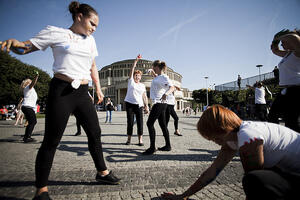Opera Europe and RESEO combined forces to present their biennial spring event in Vienna. One of the keynote speakers was Manuel Barroso who talked about the role of culture in a European context and described the European Union also as a “cultural project”.
"And if finally, over the last sixty years, we have succeeded in uniting our countries on solid economic and institutional foundations, and if it happens, it is because the Union was buttressed by the existence of an underlying fundamental unity; the cultural kinship shared by Europeans. For, in its very essence, our Union is both a political and – let’s not be afraid to say it – a cultural project."
Can culture be the answer to doubts and fundamental questions?
"Never has the European Union needed culture, in this root sense of the term, more than at the present time of deep crisis we face today, with all the doubts and fundamental questioning it has brought. Never has there been a greater need for us to take good care of our economy that we define as a social market economy, a model that we must modernise in order to better preserve it, to take care of it. And that means also support for the cultural activities that generate new ideas, innovation and social cohesion. That is why the European Commission believes that, even at these difficult times of budget constraints, Europe must not hesitate to invest in culture, a growth sector for new jobs, jobs with a future. This is precisely the spirit behind our new programme, “Creative Europe”."
"And never has there been a greater need for us to look after the younger generations and to guarantee them prospects for the future. That is why education is at the heart of our strategy for growth and employment, what we call the Europe 2020 strategy, and at the heart of all the Commission’s action to combat the terrible scourge of youth unemployment."
"The year 2013, the European Year of Citizenship, is the occasion to focus the debate about the future of Europe on civil society, including the world of culture. That is why I am promoting at European level an idea. It is about the contribution that culture can give to Europe and also what Europe can give to culture. We are organising gatherings of intellectuals, artists, culture promoters to discuss these matters, to come not only with support, but also with criticism; what we can do to have this new narrative of Europe for the 21st century. I would like to invite you to think about this, to give us your ideas, to participate in what we are going to launch as a process all over Europe."
The full speech is available here.
Picture: Crazy Dance at the European Culture Congress in Wroclaw, Poland 2011. Copyright nina.gov.pl via Flickr

